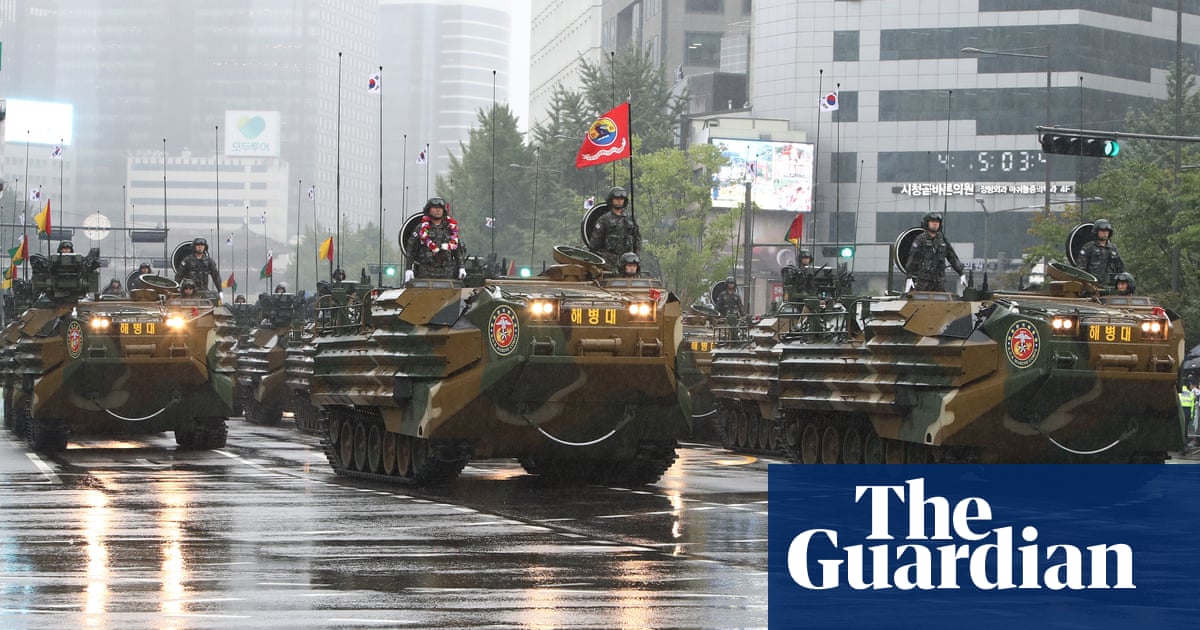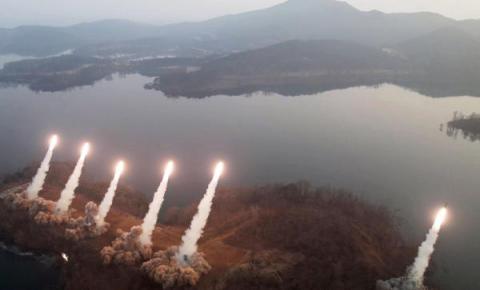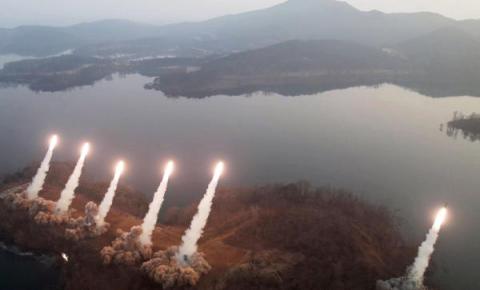
South Korea and China agreed on Tuesday to resolve the dispute that had erupted between them over the deployment of a US anti-missile system in South Korea that had strained ties between the two Asian countries for a year.
The installation of the US Terminal High Altitude Area Defense (THAAD) system had deeply angered China and spilled over into tourism, trade and even cultural ties with South Korea.
The defense system was deployed in wake of North Korea’s growing ballistic missile threat.
“Both sides shared the view that the strengthening of exchange and cooperation between Korea and China serves their common interests and agreed to expeditiously bring exchange and cooperation in all areas back on a normal development track,” South Korea’s foreign ministry said in a statement on Tuesday.
China’s foreign ministry said the two countries would get relations back onto a normal track “at an early date”.
South Korea recognized China’s concerns on the THAAD issue and made it clear the deployment was not aimed at any third country and did not harm China’s strategic security interests, China’s foreign ministry said.
China reiterated its opposition to the deployment of THAAD, but noted South Korea’s position and hoped South Korea could appropriately handle the issue, it added.
The unexpected detente comes just days before US President Donald Trump begins a trip to Asia where North Korea will again take center stage.
South Korea’s President Moon Jae-in will also meet with China’s President Xi Jinping on the sidelines of an upcoming summit of Asia-Pacific Economic Cooperation (APEC) countries in Vietnam on Novembe1 10-11, South Korea’s presidential office said.
The two heads of state are likely to discuss North Korea’s missile and nuclear program as well as ways to develop bilateral ties, a senior South Korean presidential Blue House official later told reporters, declining to be identified due to the sensitivity of the matter.
Pyongyang has undertaken an unprecedented missile testing program in recent months, as well as its biggest nuclear test yet in early September, as it seeks to develop a powerful nuclear weapon capable of reaching the United States.
The moves have angered China, North Korea’s only major ally, and drawn further tough sanctions from the United Nations and the United States.
The recent deterioration in ties between China and North Korea may have contributed to Tuesday’s agreement, the Blue House official said.
The North Korean threat was also at the heart of talks between Japanese Prime Minister Shinzo Abe and NATO Secretary General Jens Stoltenberg in Tokyo.
They said in a joint statement following their meeting Tuesday that they "condemn in the strongest terms North Koreas nuclear tests and ballistic missile launches, which are in flagrant violation of multiple United Nations Security Council resolutions."
They also called on UN member states "to implement fully and transparently" relevant UN Security Council resolutions, and to "apply decisive pressure on the North Korean regime to abandon its nuclear and ballistic missile" programs.
Trump and Abe meanwhile agreed to work together on steps to counter North Korea’s nuclear and missile development.
In a 20-minute phone call, Trump and Abe discussed the schedule of the president’s coming visit, which includes a Novembe1 5-7 stop in Japan, and agreed to remain in close contact over North Korea, Deputy Chief Cabinet Secretary Yasutoshi Nishimura told reporters.
Trump told Abe “he is looking forward to his visit to Japan, that Japan and America are 100 percent together and there is no room to doubt the Japan-US alliance,” Nishimura said.
“They agreed to deepen their discussions on the North Korean situation and other matters” during Trump’s visit, he said.











